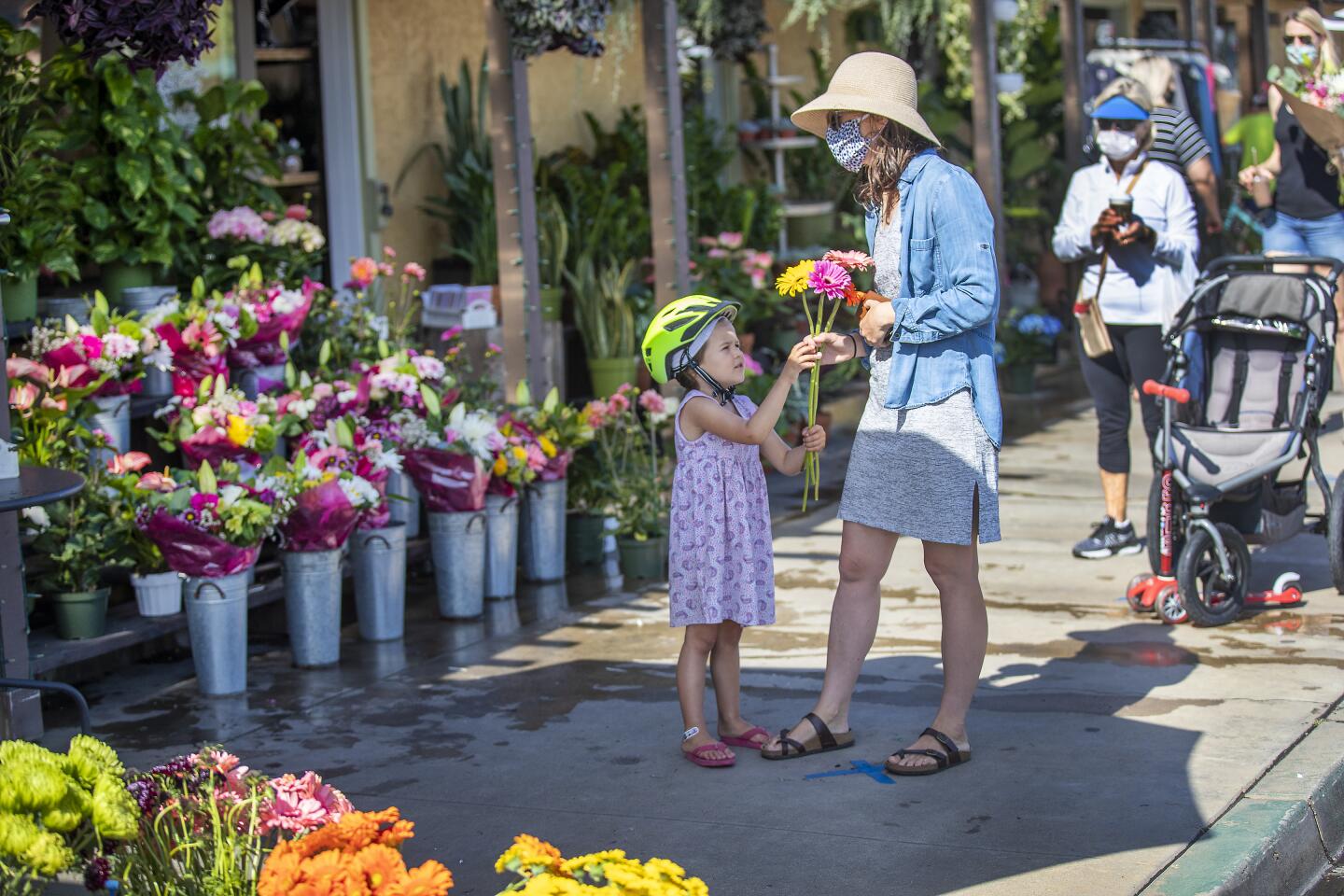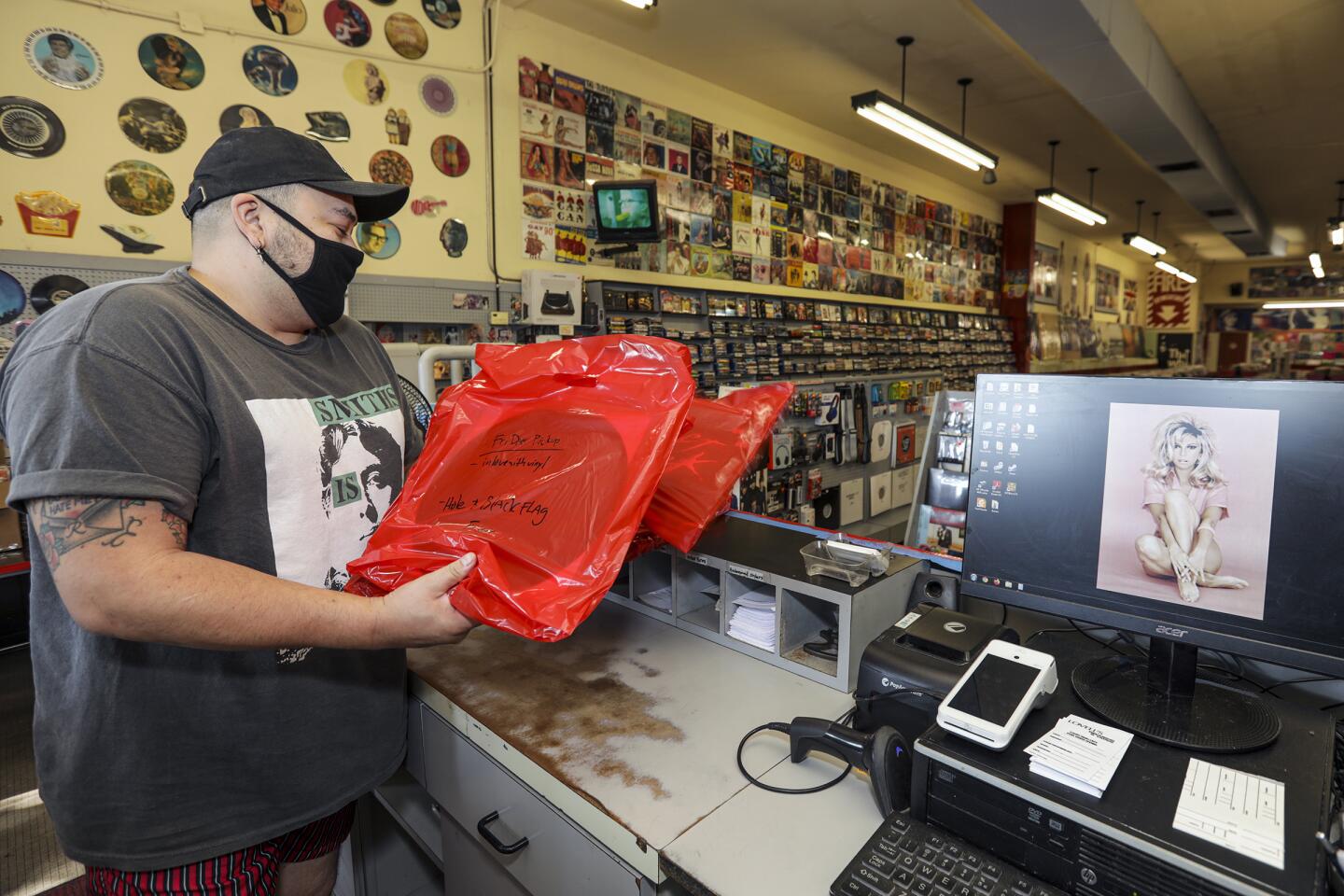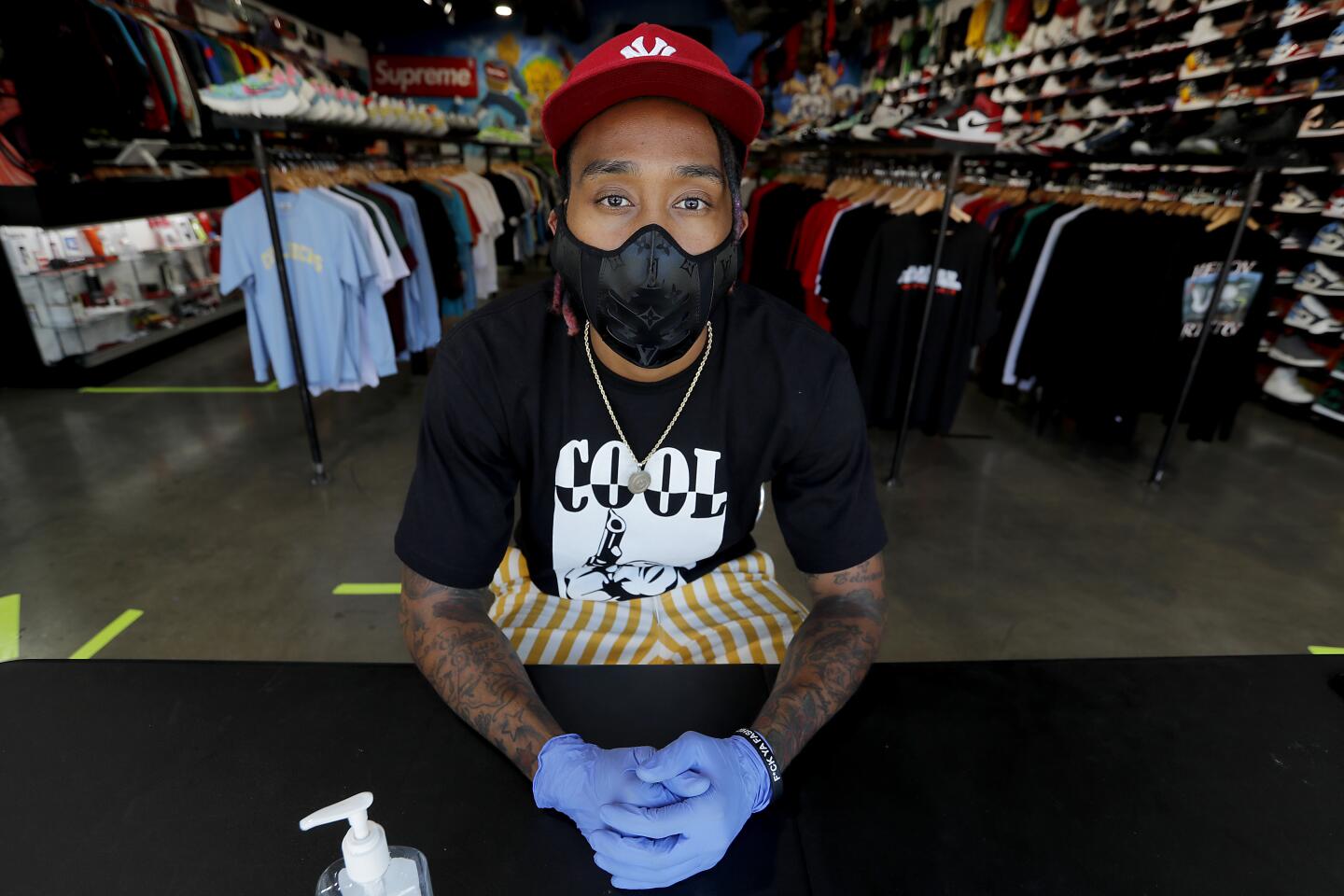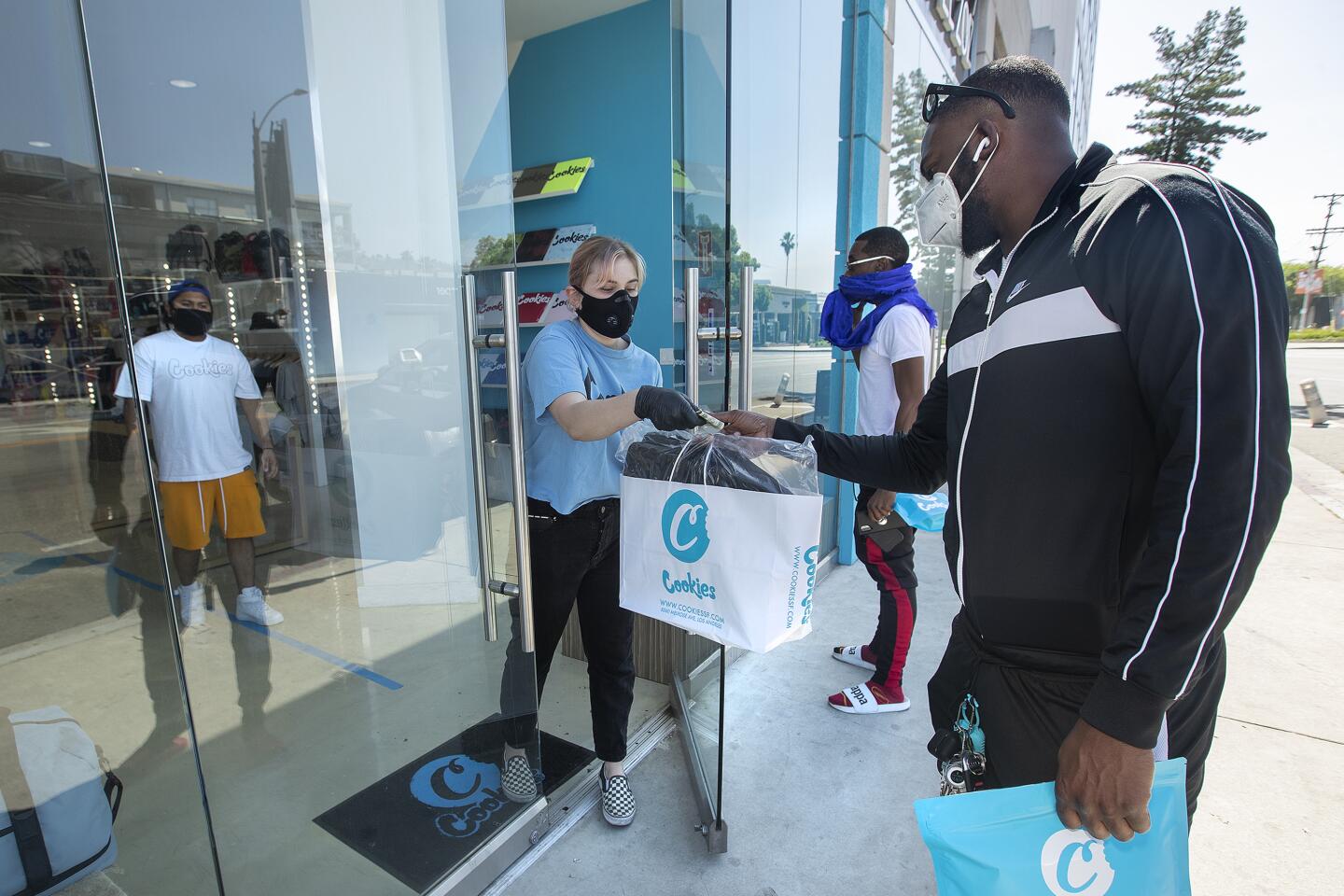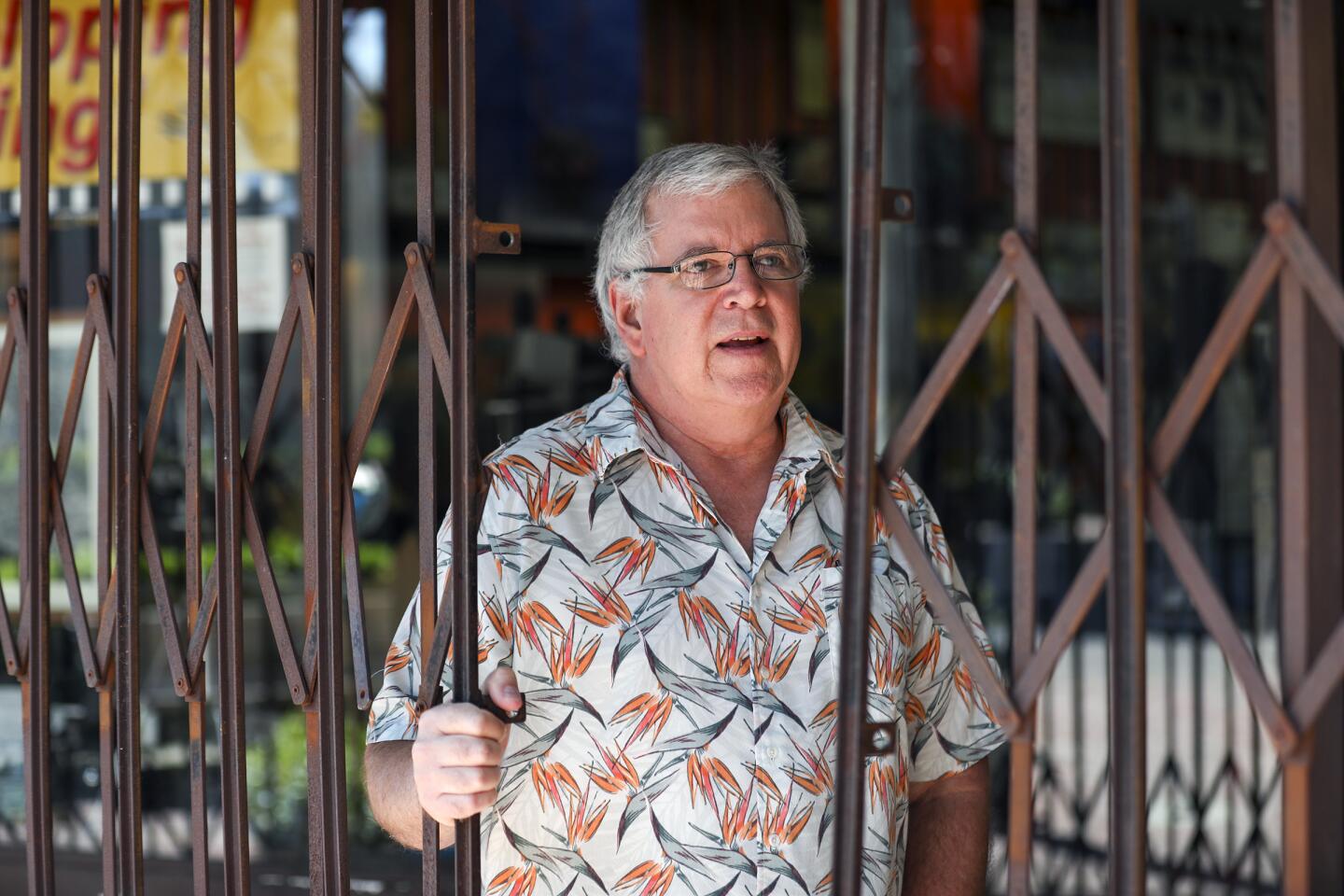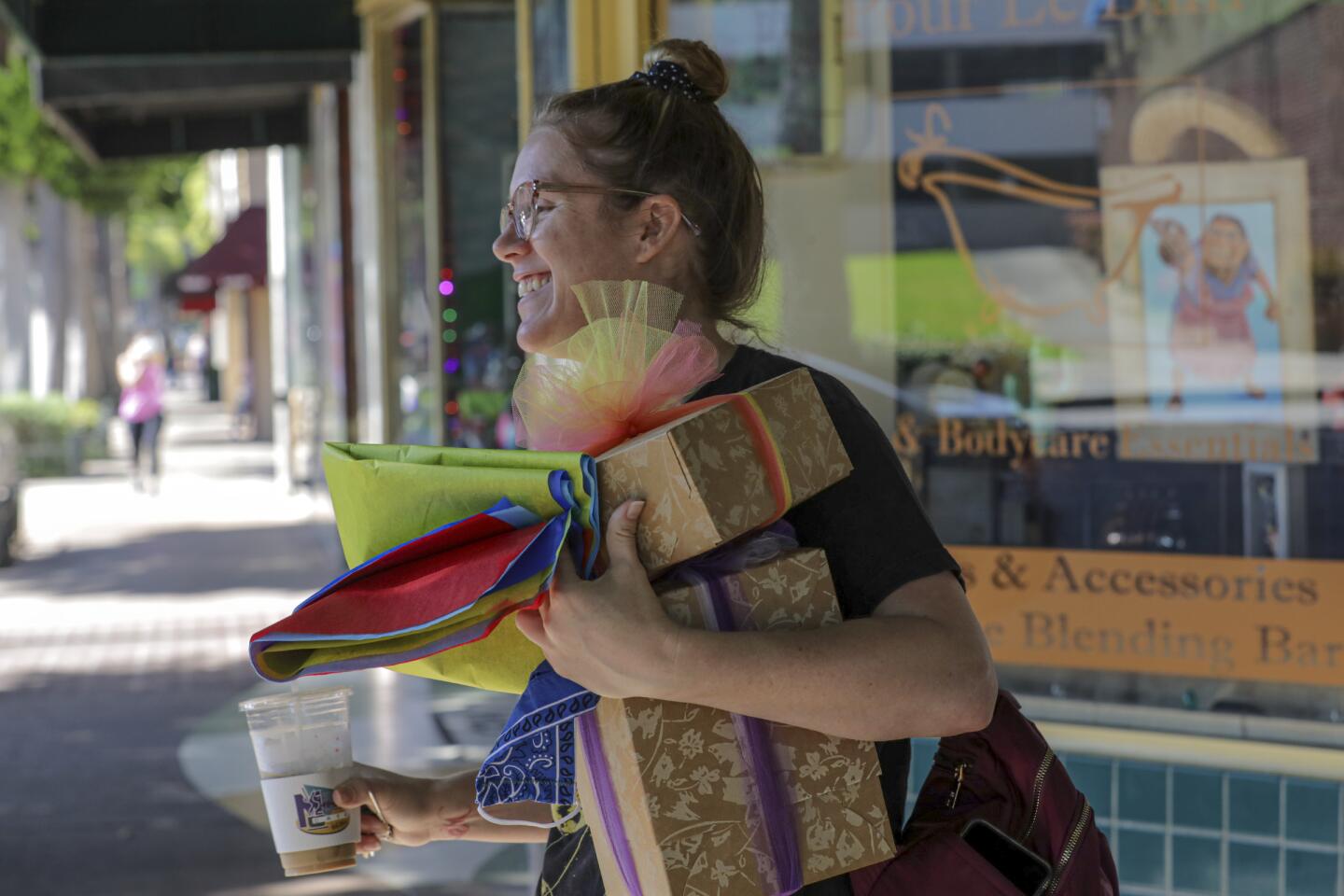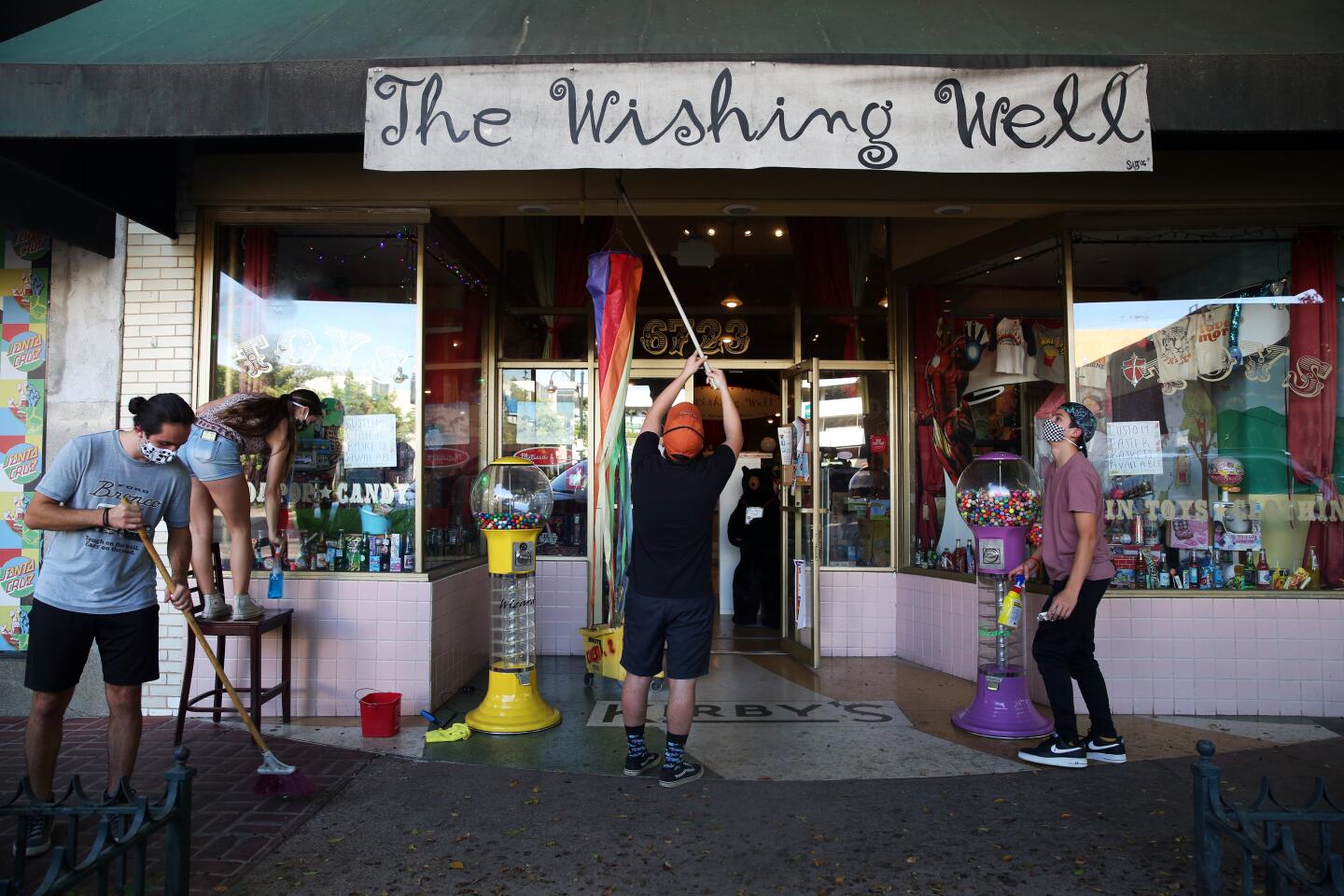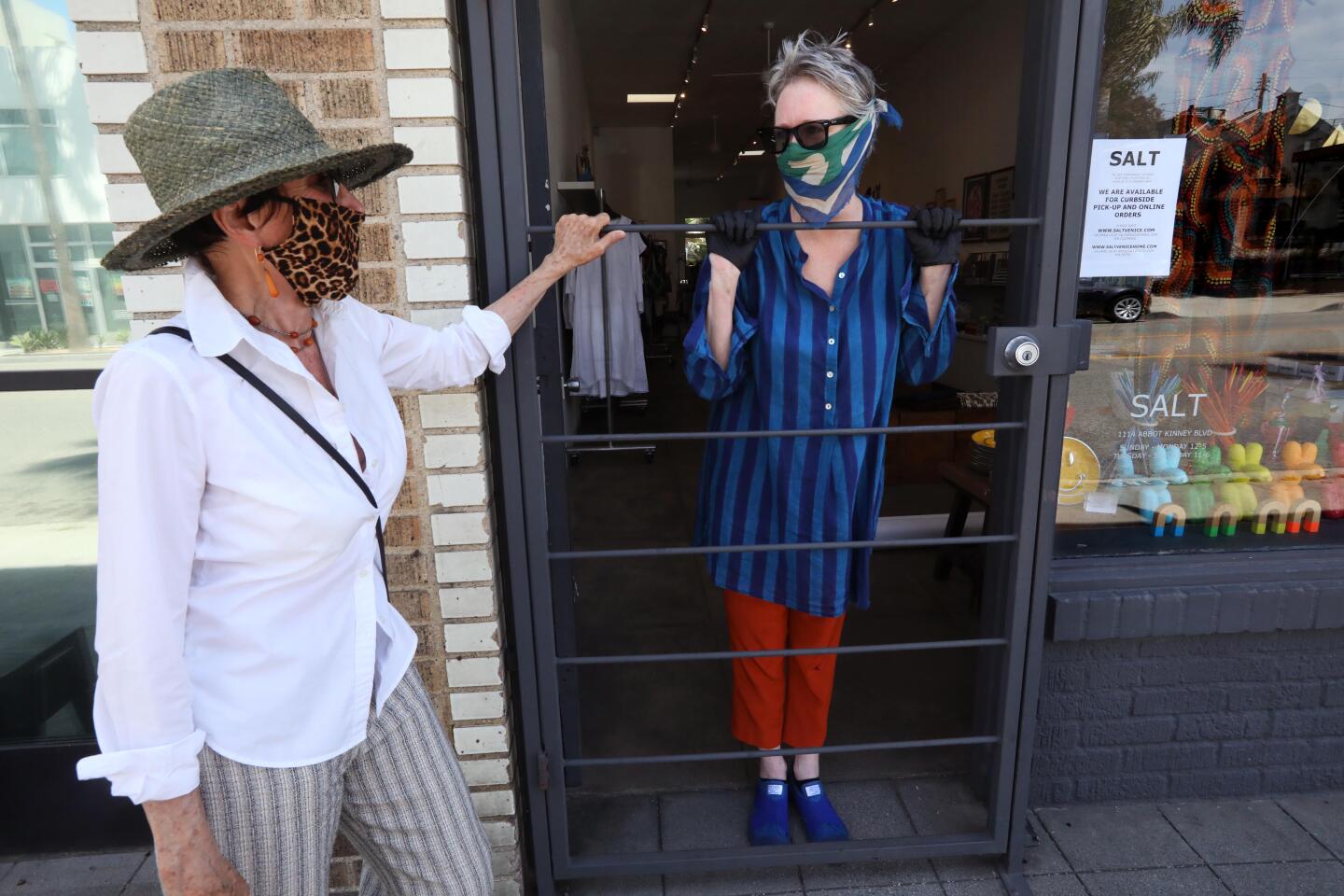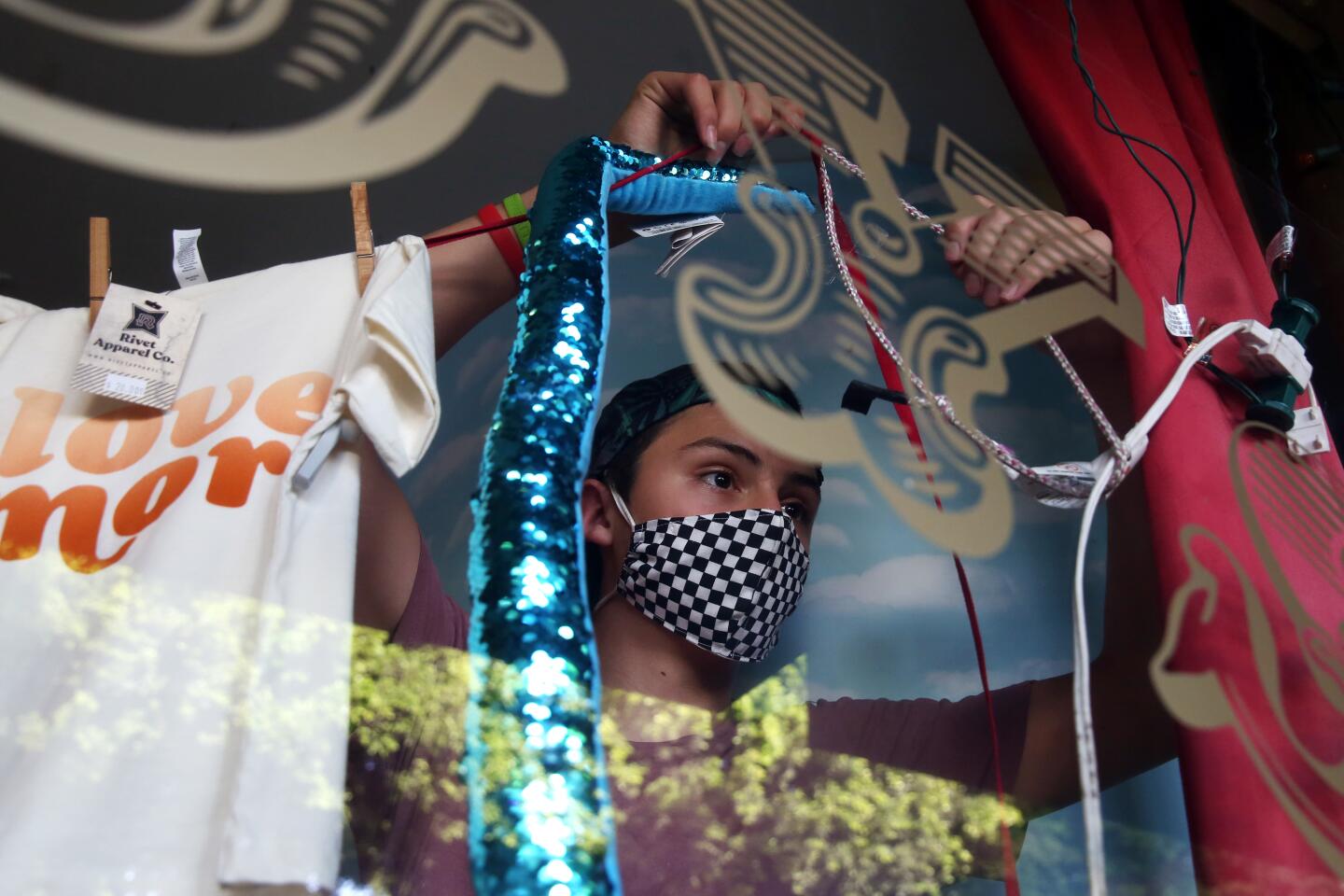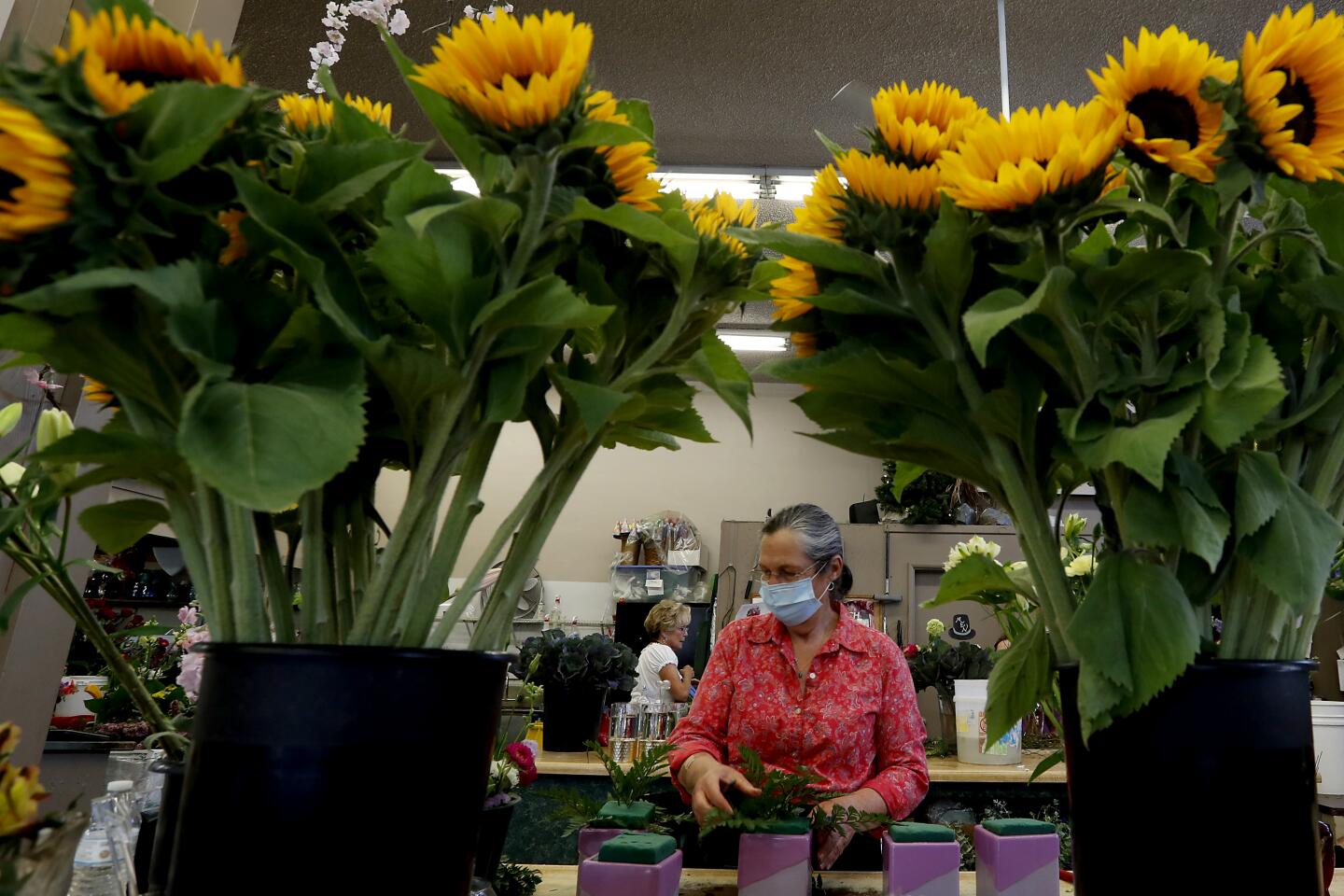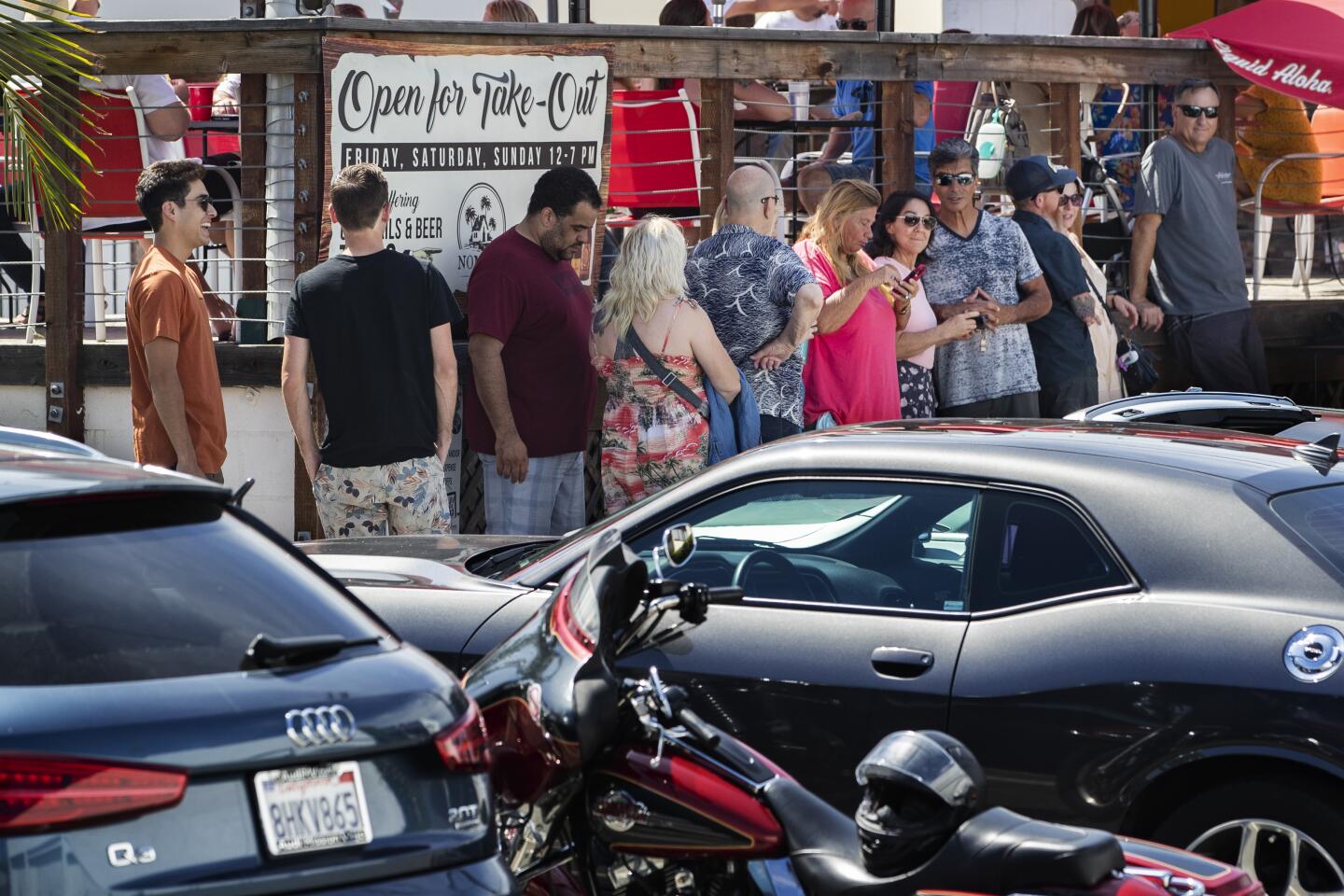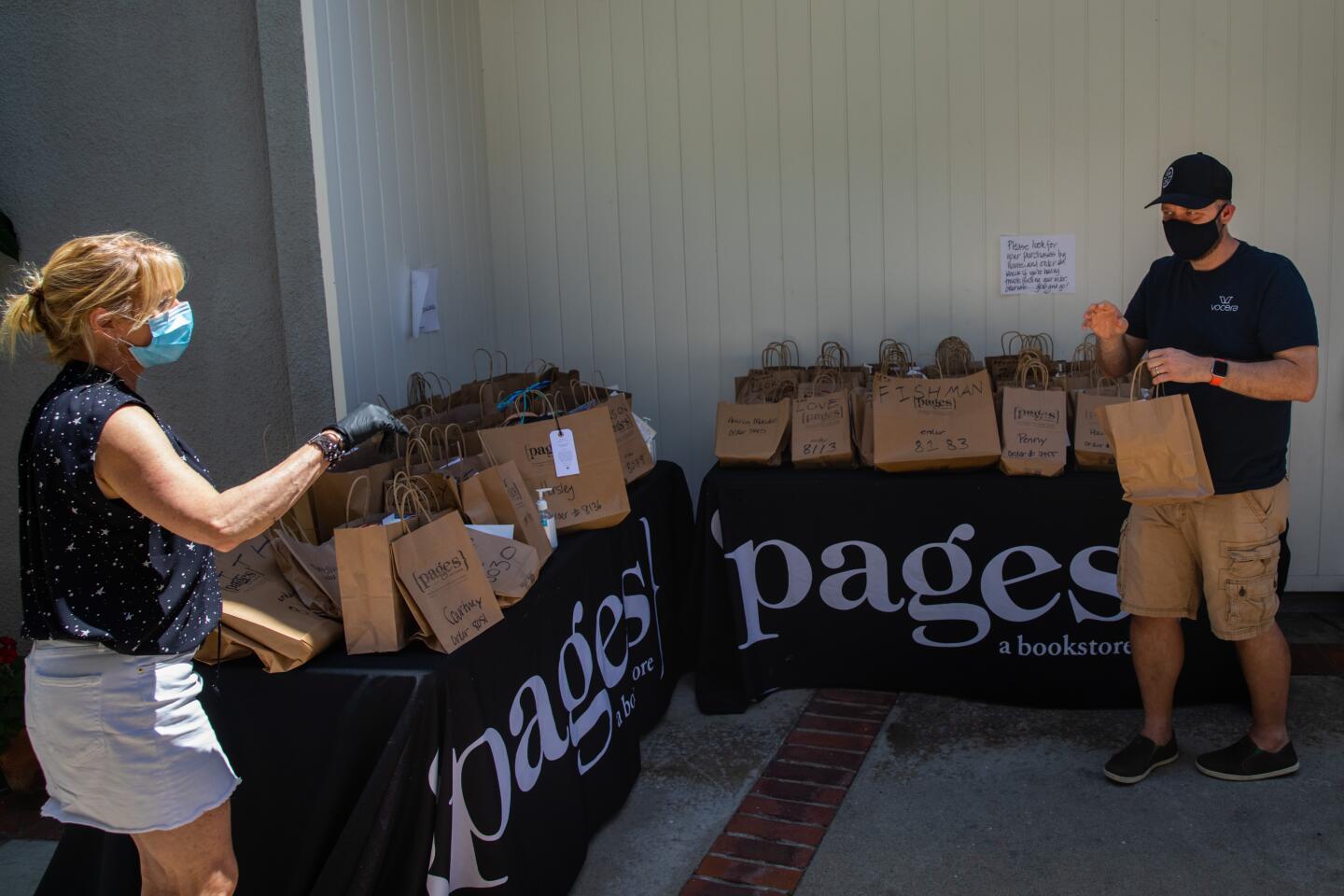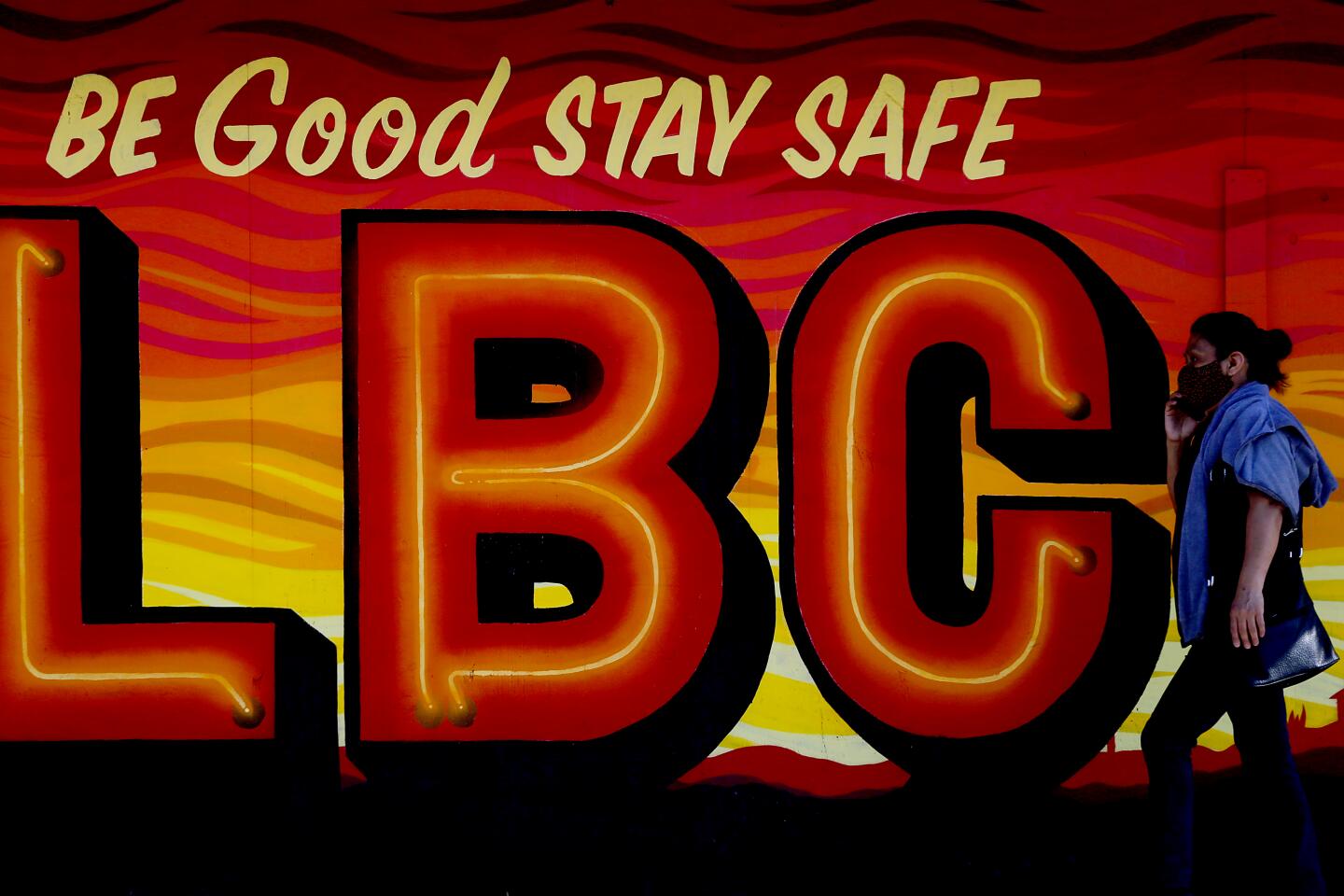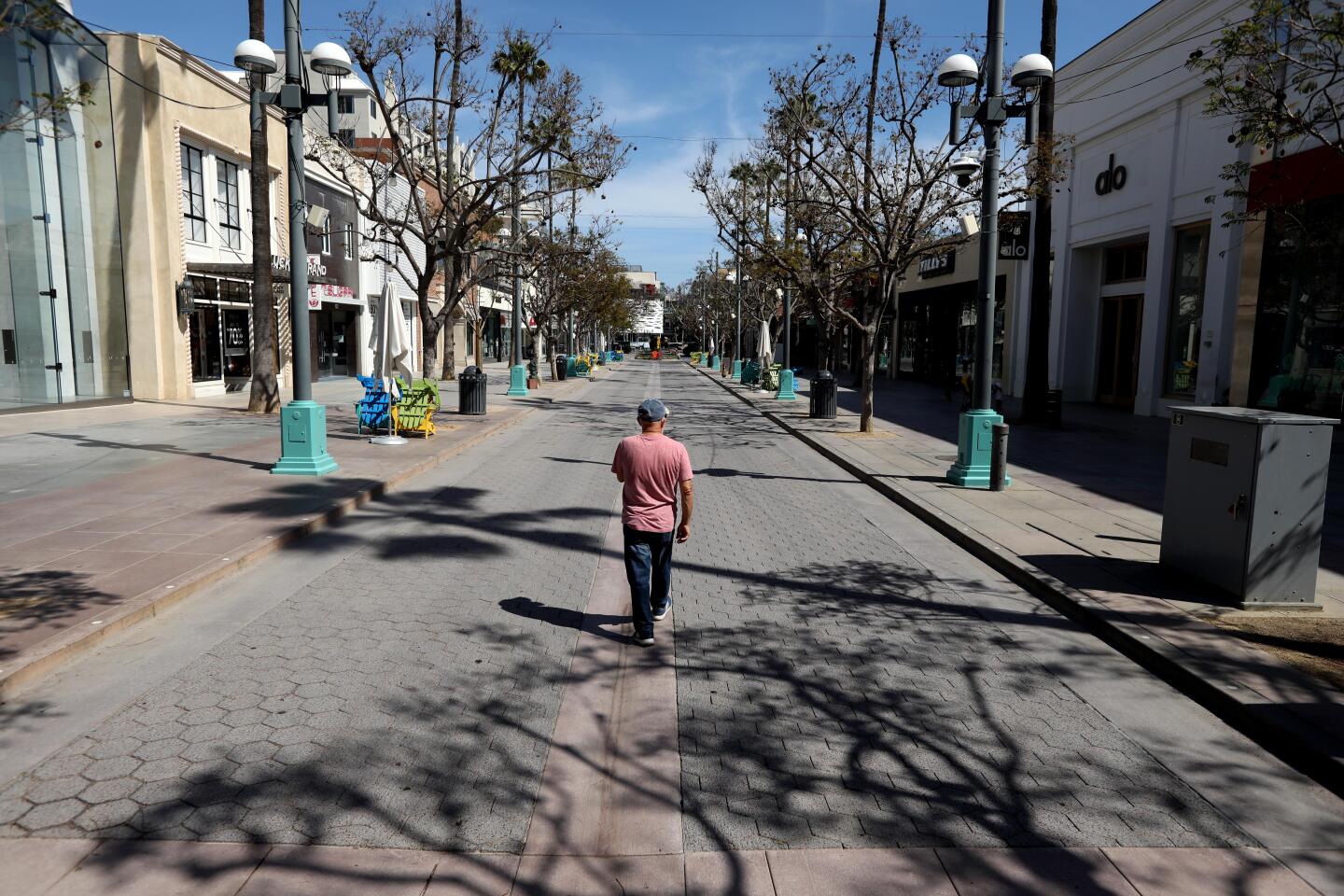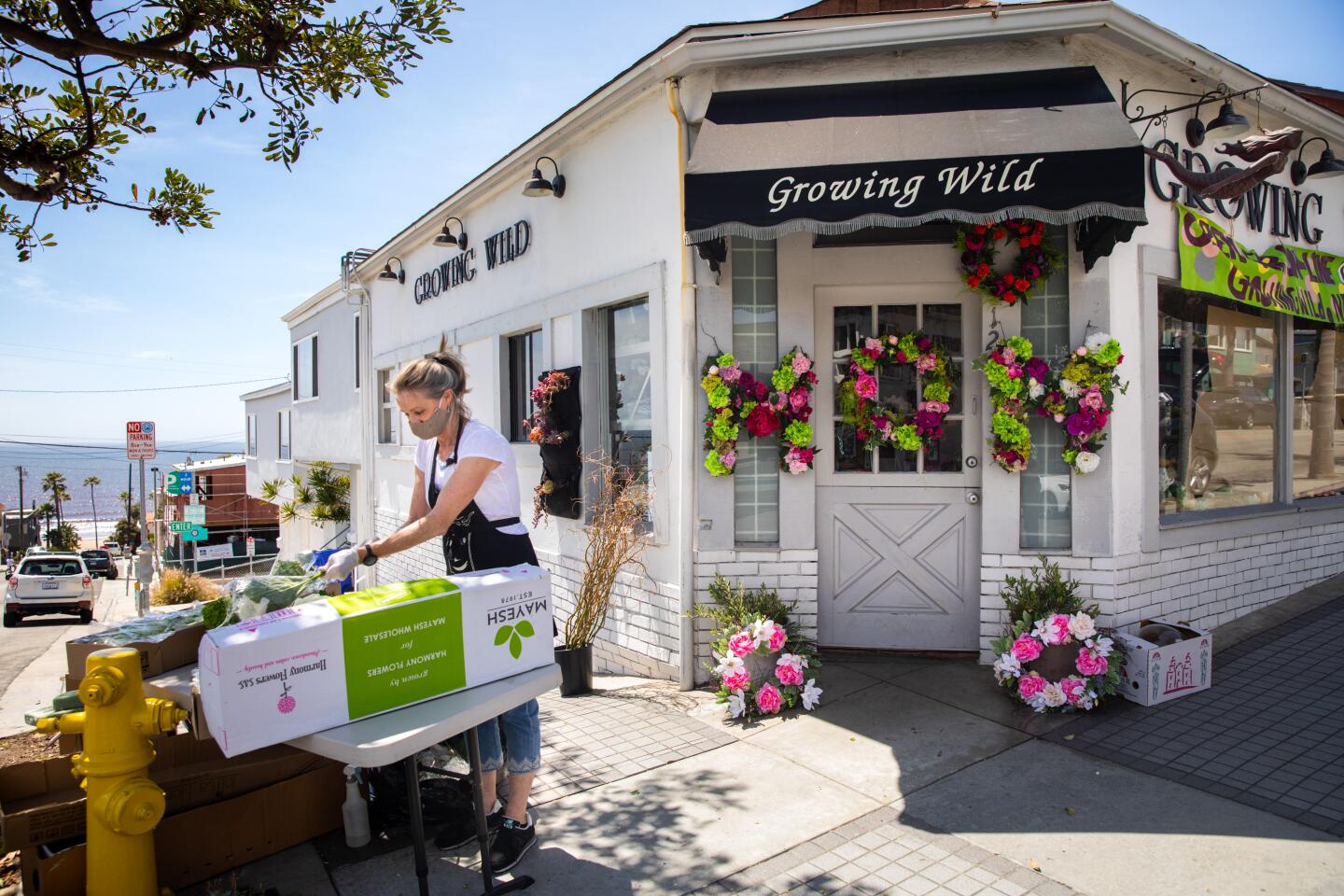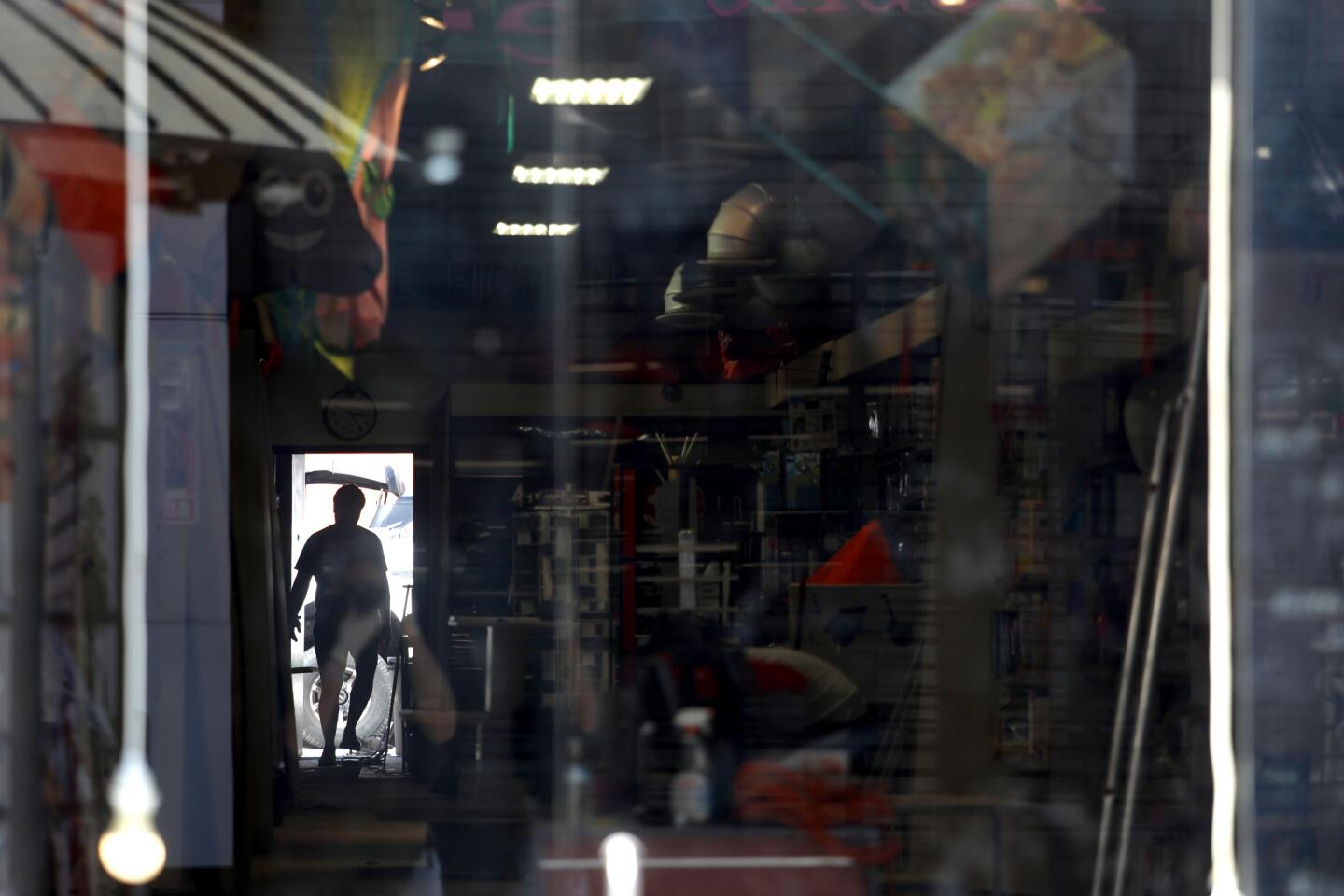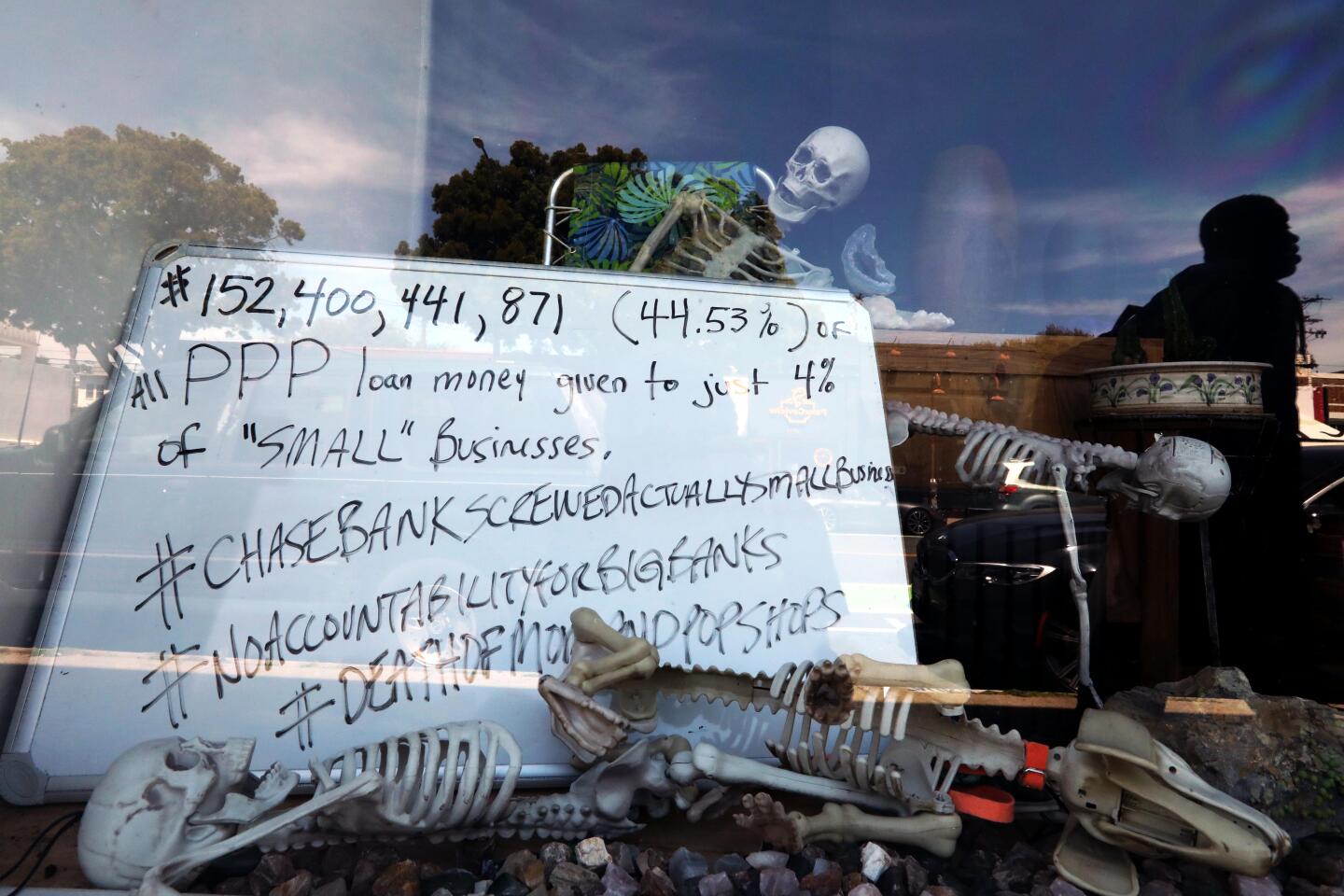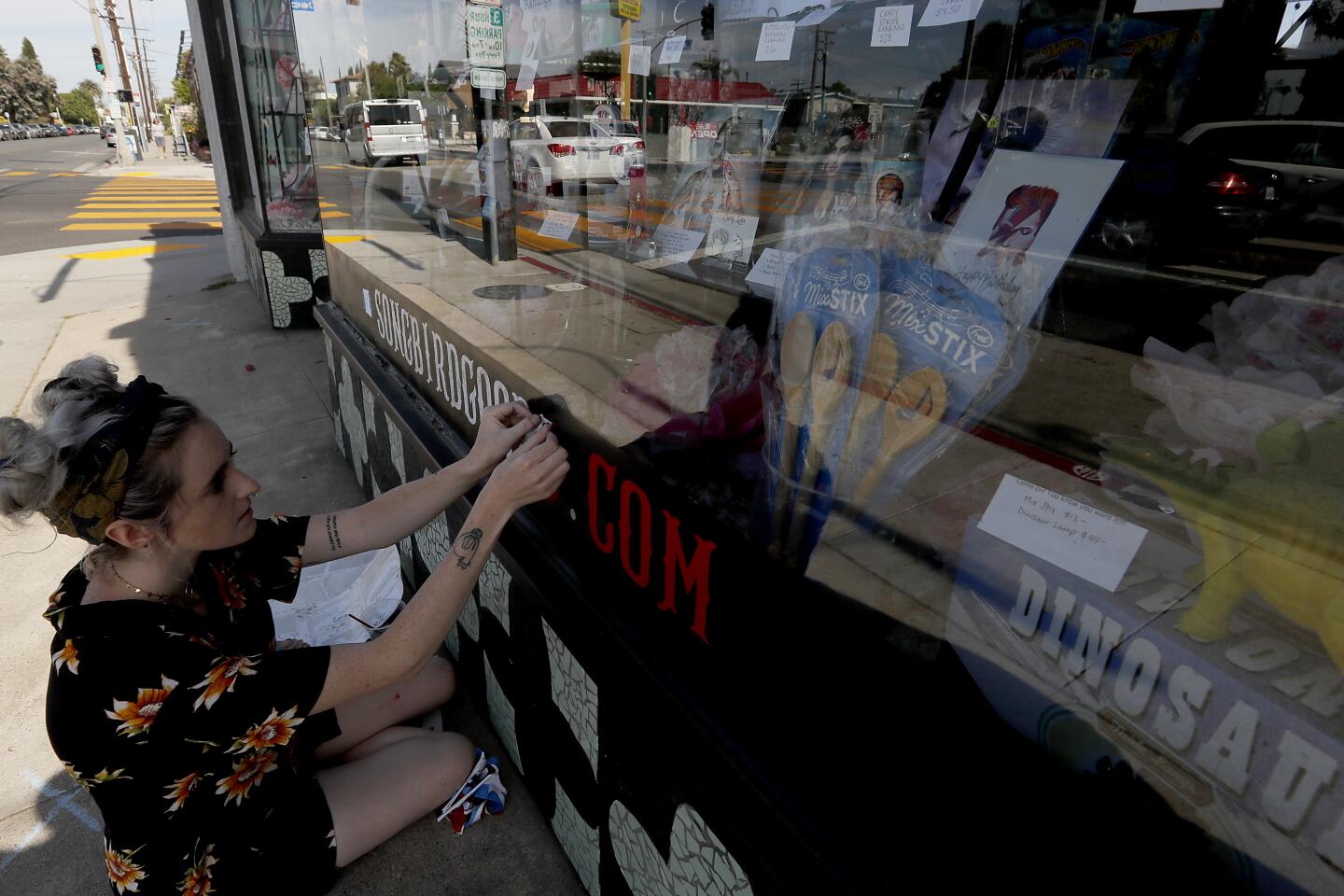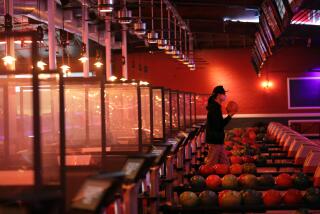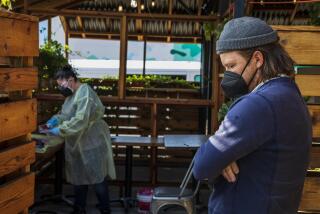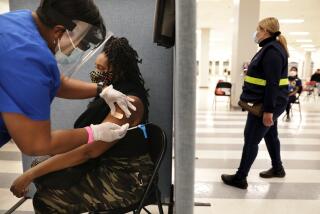Most California counties fall short of reopening criteria as coronavirus cases climb
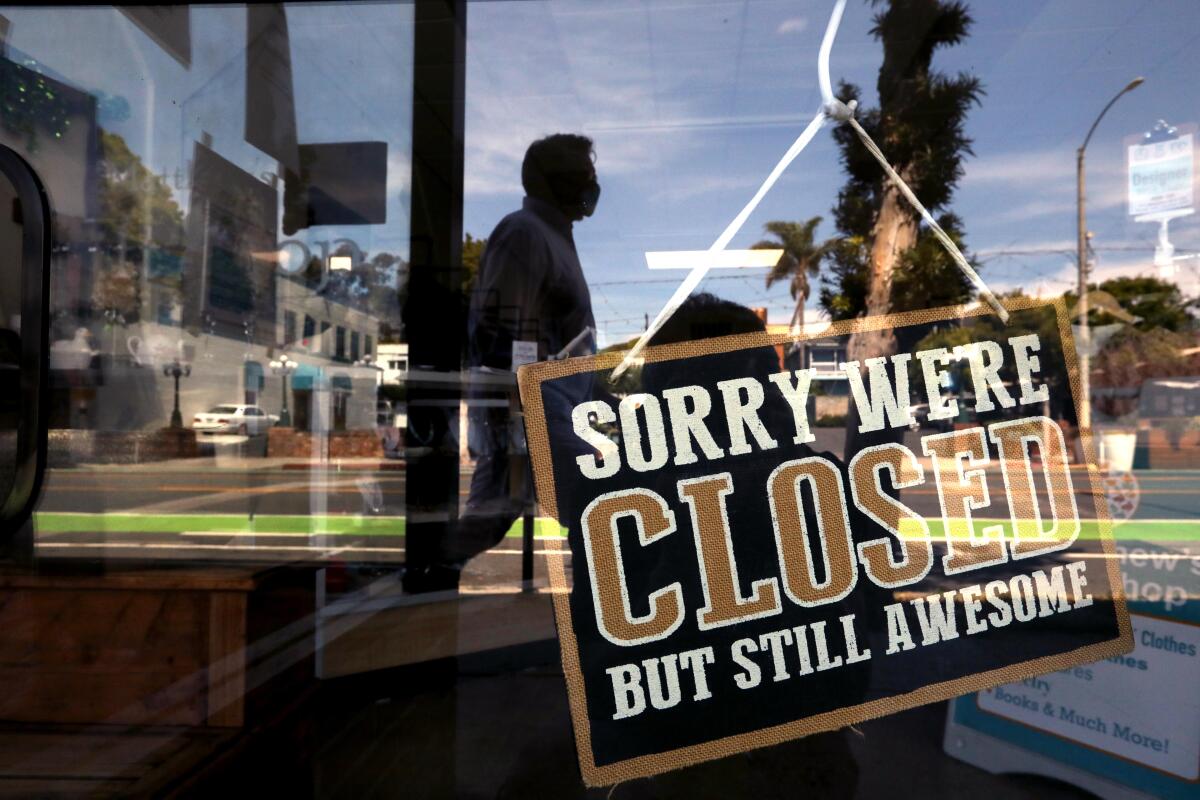
Most big California counties are not close to meeting Gov. Gavin Newsom’s strict standards that would allow a wider reopening of the economy, including dine-in restaurants and shopping malls, a Times data analysis found.
Newsom announced Thursday a series of benchmarks each of California’s 58 counties would need to reach to significantly reopen faster than the statewide standard. Can the county show that people have stopped dying from the coronavirus? Have new cases fallen to a manageable level? Can officials adequately test people? Do they have enough detectives to track down newly infected people? And do they have enough medical supplies?
The Times conducted an analysis to see which counties could pass just the first two criteria — whether deaths have stopped in the past 14 days, and whether there is no more than one case per 10,000 residents in that same time period. Most of California failed that test.
In fact, 95% of Californians live in counties that don’t meet that standard, The Times analysis found. Not a single county in Southern California nor the San Francisco Bay Area met the criteria.
The 24 counties that did meet the criteria, for the two-week period that ended Thursday, are all in Northern California and most are sparsely populated.
The three largest counties meeting both criteria are Placer County, population 380,000, northeast of Sacramento; Santa Cruz County, population 274,000, south of San Jose; and Butte County, population 227,000, in the foothills of the northern Sierra Nevada.
With the exception of Santa Cruz County, all 24 counties are north of the San Francisco Bay Area, Sacramento and the Yosemite Valley.
Only 2 million of California’s 39.1 million residents live in these counties.
The failure of most California counties to meet the criteria demonstrates just how persistent the coronavirus is in the Golden State’s most populous areas. The Times analysis found that 92% of Californians live in counties that in the last two weeks have recorded at least one death from COVID-19, the disease caused by the coronavirus.
The criteria need to be met only by counties wanting to move faster than the statewide pace of reopening. While California entered the first part of Phase 2 of Newsom’s reopening plan Friday, its effect statewide was limited — only allowing lower-risk businesses to open for curbside pickup, like florists and stores selling books, clothes, music, toys and sporting goods. The easing applied only to counties without stricter local rules.
Counties that meet the criteria in the latter part of Phase 2 could allow people to dine inside restaurants and head into malls.
Newsom suggested Friday that the guidelines would be later modified on a statewide basis, allowing larger counties hit hardest by the outbreak to also reopen more broadly.
“Over the next few weeks, we’ll be making subsequent announcements for the entire state, not just those that meet those more restrictive criteria,” Newsom said.
California has recorded more than 63,000 cases and more than 2,600 deaths. Urban areas have seen a greater toll than many smaller communities.
Los Angeles County, California’s most populous and home to one-quarter of the state’s population, has suffered the highest death toll of any county for the last two weeks. Its 622 deaths were 61% of all the deaths recorded in California from COVID-19 during that time period. Another 51 deaths were reported in L.A. County on Friday.
Riverside County comes up second, recording 92 fatalities in the past two weeks. Riverside County’s health officer, Dr. Cameron Kaiser, has been locked in a contentious standoff with some other county officials who are demanding he rescind orders requiring people to wear facial coverings in public and stay at least six feet away from others.
Nine other counties had death tolls in the double digits over the last two weeks: San Diego County, with 65; Santa Clara County, 32; Orange County, 30; San Bernardino County, 31; Alameda County, 21; San Mateo County, 17; Tulare County, 18; Stanislaus County, 14; and San Francisco, 11. In all, there were 26 counties that have reported at least one death in the past two weeks, in counties home to 36 million people.
Eight counties — with a combined population of 1 million — have met the standard of no deaths in the last two weeks, but have rates of new cases higher than the state’s cutoff for a speedier reopening. The worst hit county in this category is Kings County in the San Joaquin Valley, with 13 new cases per 10,000 residents — just above L.A. County’s rate of almost 12 cases per 10,000 residents in the past two weeks.
Kings County is the site of a large coronavirus outbreak at a meat packing plant in Hanford, where at least 138 have been infected, according to the Fresno Bee.
The others with disease rates that exceed the state standard include Mariposa County, home of Yosemite National Park, with eight new cases per 10,000 residents. Three other counties have between two and three new cases per 10,000 people: Mono County, home to the Mammoth Mountain ski area; San Luis Obispo County on the Central Coast, and Merced County in the San Joaquin Valley.
Newsom said he understood there’s a “deep anxiety; people are feeling a desire to reopen,” but that the criteria for counties to reopen at a pace faster than the statewide standard was based on what public health experts advised. California has recorded an average of 500 deaths a week for the past four weeks.
He said officials need time to make sure authorities build up robust capacity to test people and train a workforce of disease detectives to investigate new cases — and identify their close contacts — as California reopens.
It’s no small task. In Silicon Valley, the Santa Clara County health officer, Dr. Sara Cody, this week said she foresees a need to create an expanded disease detective team twice the size of the local public health department. Cody said officials are looking at having county, city and school district employees do the work, as well as volunteers.
Currently, the Bay Area’s most populous county can investigate 25 new cases a day — and that’s adequate right now because most people are staying at home. But once shelter-in-place orders are lifted and people start leaving home more often, Santa Clara County will likely need to investigate 75 cases a day.
The manpower needed is enormous in L.A. County, where an average of 900 cases a day have been reported in the last week. Not only do each of those newly infected people need to be contacted, but so do each of their close contacts, which have averaged eight before the stay-at-home order was implemented and now average five.
Newsom said businesses and venues in a higher risk category, Phase 3 — like hair and nail salons, gyms, movie theaters, churches and weddings — could see a reopening in the coming months. Churches have been a notable site for coronavirus outbreaks worldwide, and Newsom has said a nail salon was the site of California’s first confirmed spread of the coronavirus in the community.
“Phase 3 is not a year away. It’s not six months away. It’s not even three months away. It may not even be more than a month away. We just want to make sure that we have a protocol in place to secure customer safety, employee safety and allow the businesses to thrive in a way that is sustainable,” Newsom said.
As for the rest of Phase 2, Newsom said he hoped he could move all of California into the next phase, while allowing some regions to be stricter if they decide that’s needed. “We hope to be making announcements on a consistent basis, over the next few weeks, moving everybody into this next phase,” Newsom said.
Times staff writers Phil Willon and Alexandra Wigglesworth contributed to this report.
More to Read
Sign up for Essential California
The most important California stories and recommendations in your inbox every morning.
You may occasionally receive promotional content from the Los Angeles Times.
